Kitano Tenmangu Shrine in Autumn: A Hidden Gem in Kyoto
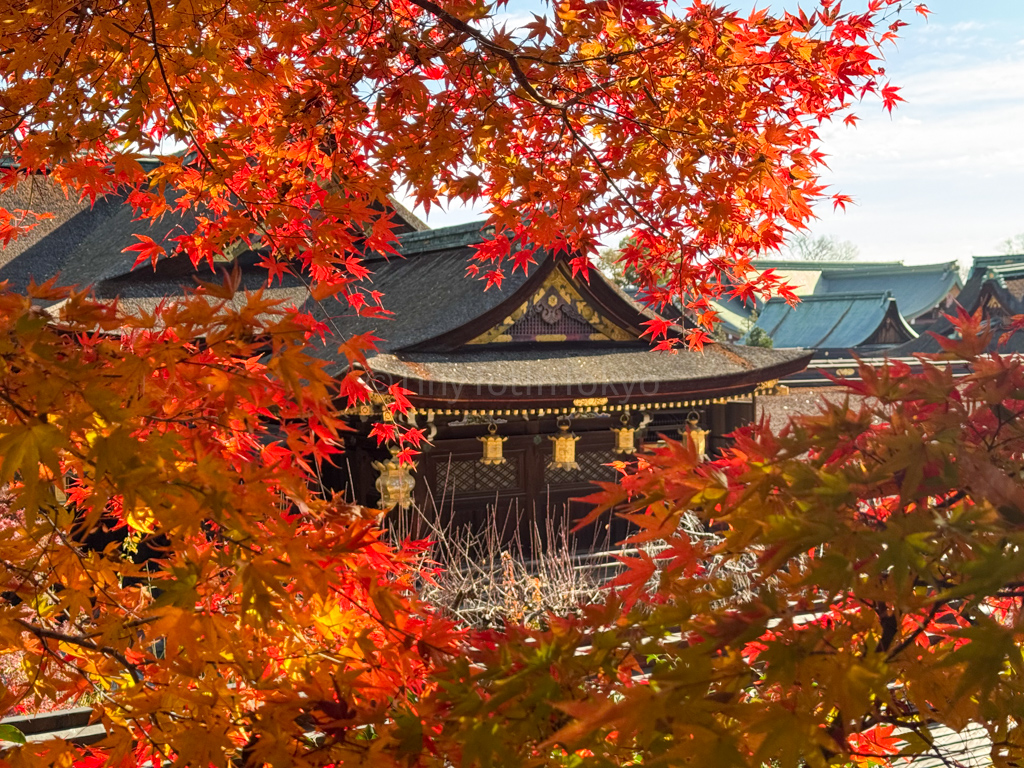
Last Updated on September 6, 2025 by Kay
This post may contain affiliate links, meaning I may earn a small commission on any purchases through those links at zero additional cost to you. Whatever I make goes to keeping this website running and I am forever grateful for the support. See my Privacy Policy for more information.
Kitano Tenmangū Shrine is one of Kyoto’s most charming and underrated spots, especially if you’re traveling with family members who love seasonal nature and open space to explore.
The shrine is especially stunning during maple leaf season, and there’s a relaxing, not-too-touristy vibe that’s hard to find in Kyoto.
In this article, I’ll share my family’s experience visiting Kitano Tenmangu Shrine in autumn so that you can decide whether it’s worth visiting during your trip to Kyoto.
Table of Contents
Background of Kitano Tenmangu Shrine
With a history of over 1000 years, Kitano Tenmangu is most known for being the first shrine in Japan that enshrined a real person as a deity. This deity is known as a god for many things, such as agriculture and the arts, but most notably as the god of academics, making the shrine popular with students who want to pass an exam.
The shrine grounds are quite large, consisting of a main shrine, a shrine museum, and lots of beautiful trees with seasonal foliage.
How to Get to Kitano Tenmangu Shrine
Kitano Tenmangu Shrine is located on the north side of Kyoto City. It takes about 30 minutes to get there by public transport.
The closest bus stop is Kitano Tenmangu Mae (北の天満宮前). From there, it’s a one-minute walk to the shrine.
An Autumn Day at Kitano Tenmangu Shrine
My family of three visited Kitano Tenmangu during the second week of December. I thought it would be too late to see colorful autumn leaves, but surprisingly, the fall foliage was at its peak.
Here’s what the main shrine gate looks like.
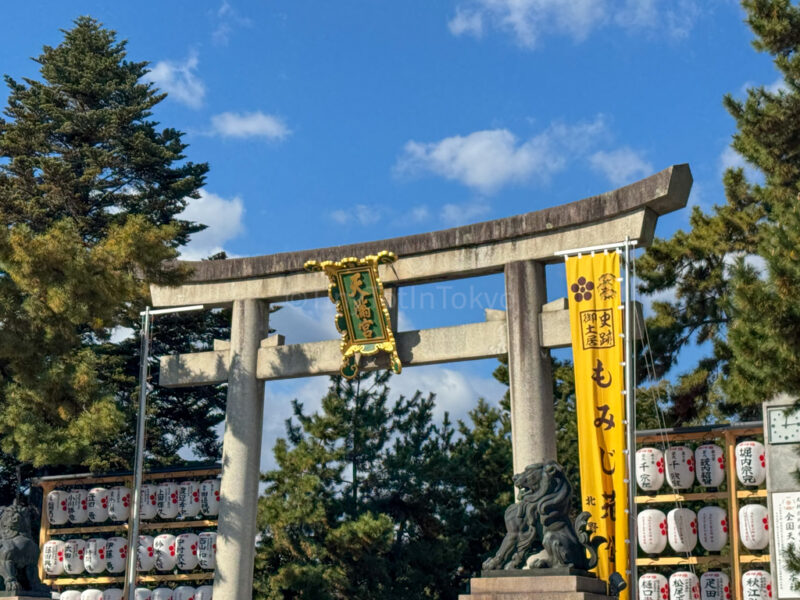
Once we were inside, we saw beautiful yellow ginkgo trees throughout the grounds, which looked brilliant against the vermillion and brown structures in the main hall.
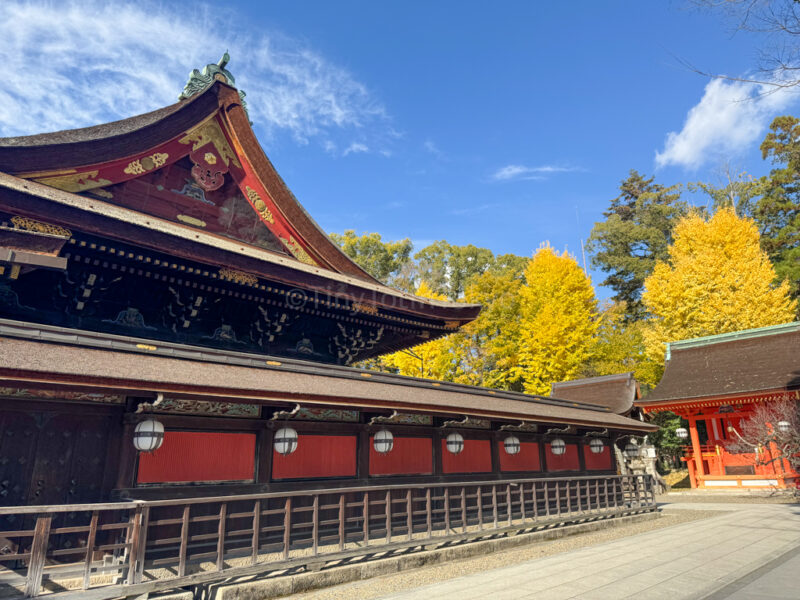
We could also see the gingko trees among the sessha, which are subsidiary or auxiliary shrines dedicated to other deities.
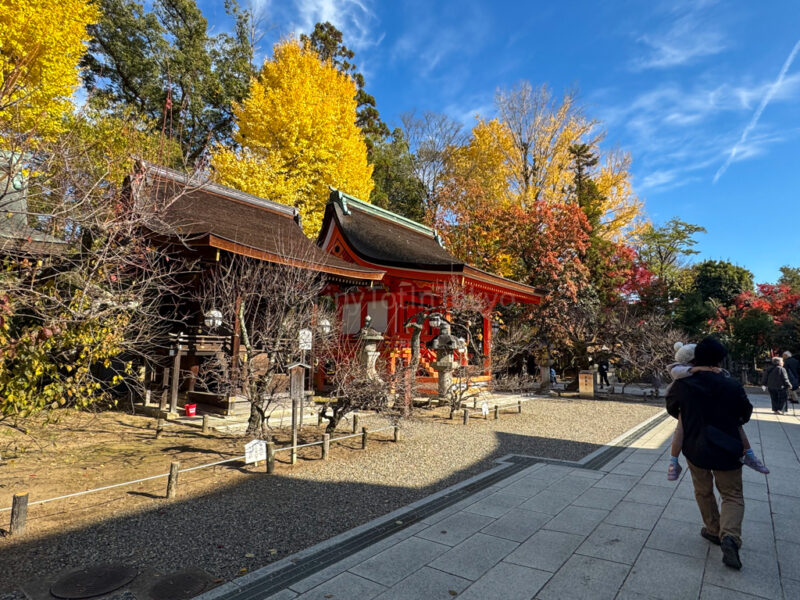
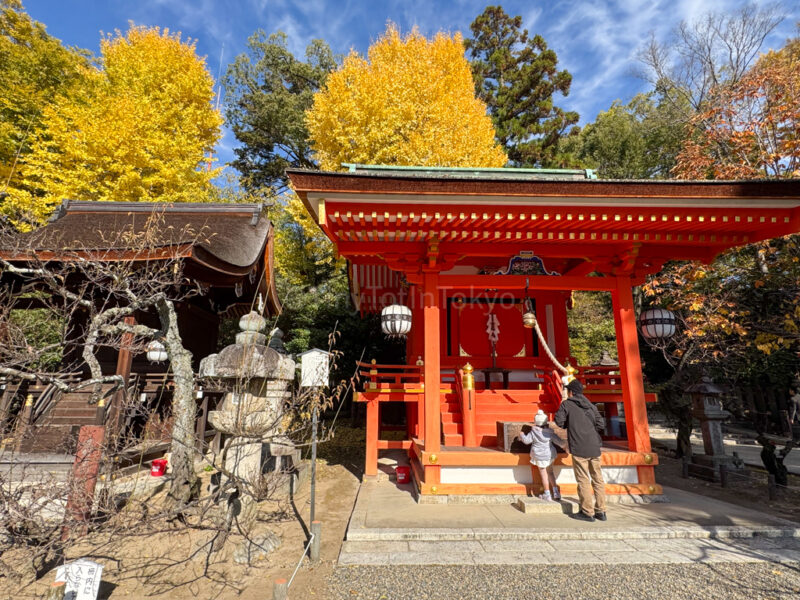
We were able to see stunning, colorful autumn leaves in other areas, too, throughout the shrine grounds.
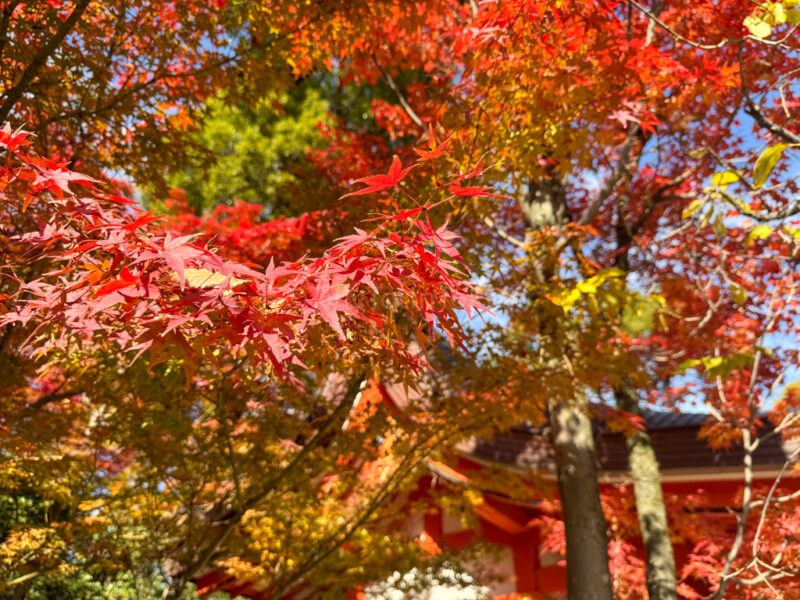
The main hall (Haiden), where you pray, was fairly busy but we were still able to pay our respects to the gods.
To pray, toss a coin into the slotted wooden offering box. Bow down twice, clap twice, and then bow once again, but this time for a longer time.
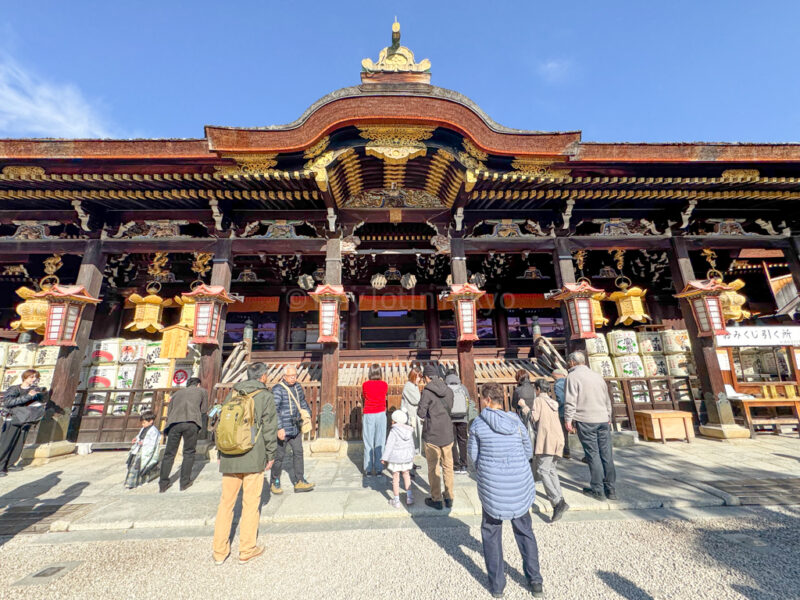
We made sure to check out the decor of the halls as well. Below you can see white rabbits hopping along the sea, which were carved into the wood, as well as a shisha (dragon).
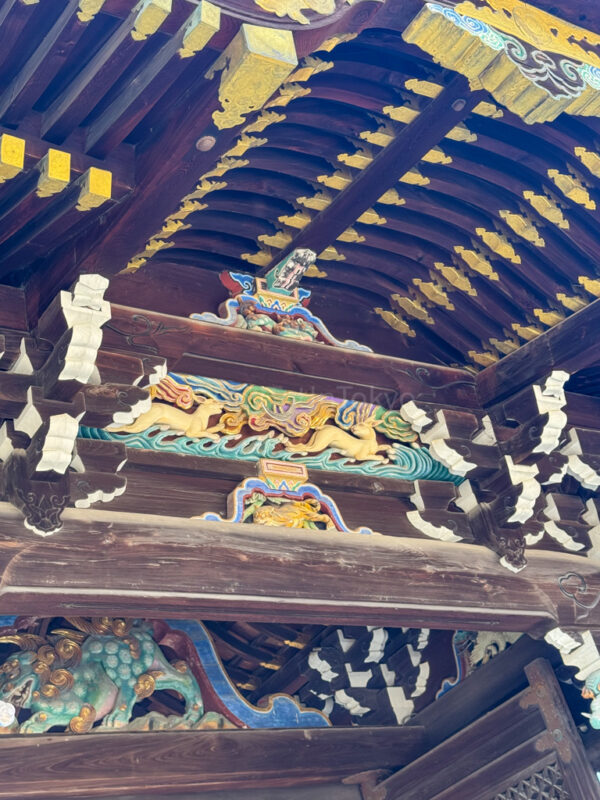
There is also a building with lots of old artwork on the ceiling, which was absolutely fascinating.
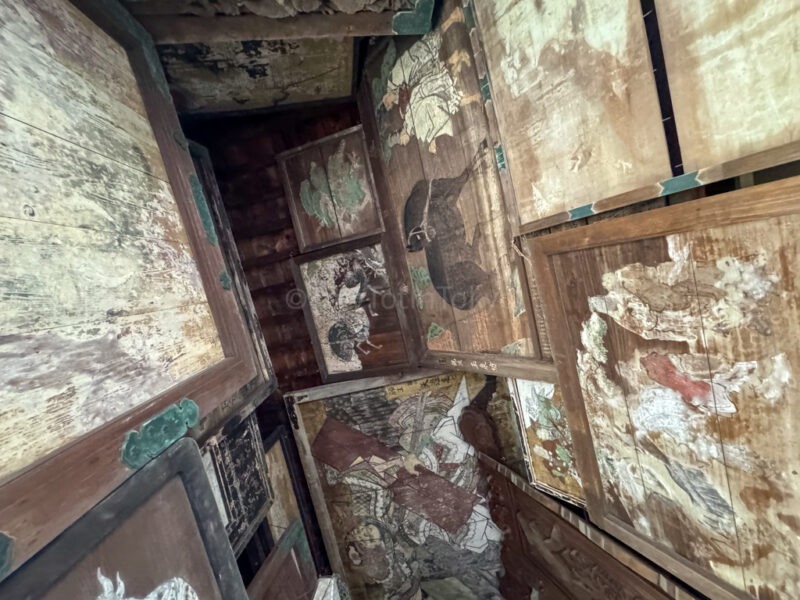
Another highlight was the small area with vermillion torii gates, which felt like a bite-sized version of Fushimi Inari Taisha, but with far fewer people and no climbing involved.
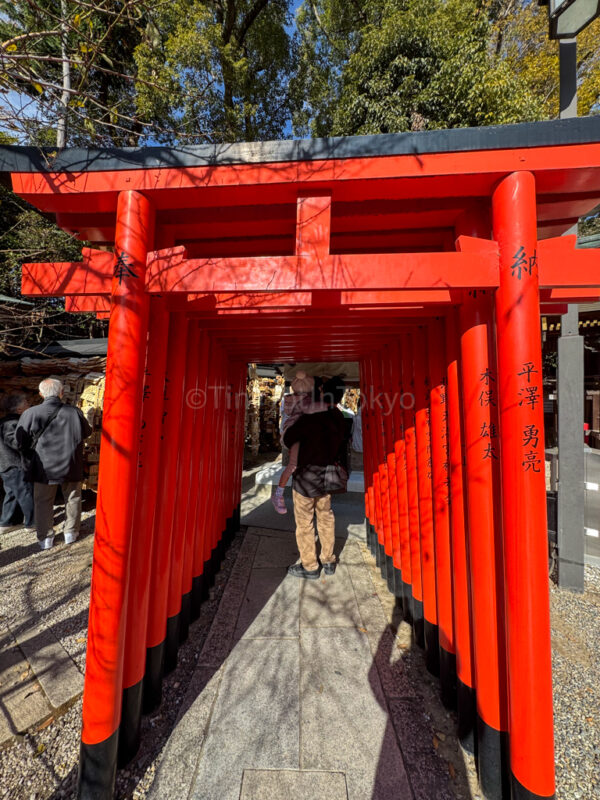
My daughter also got some mini taiyaki (hotcakes) from a food stall, which she gobbled up immediately.
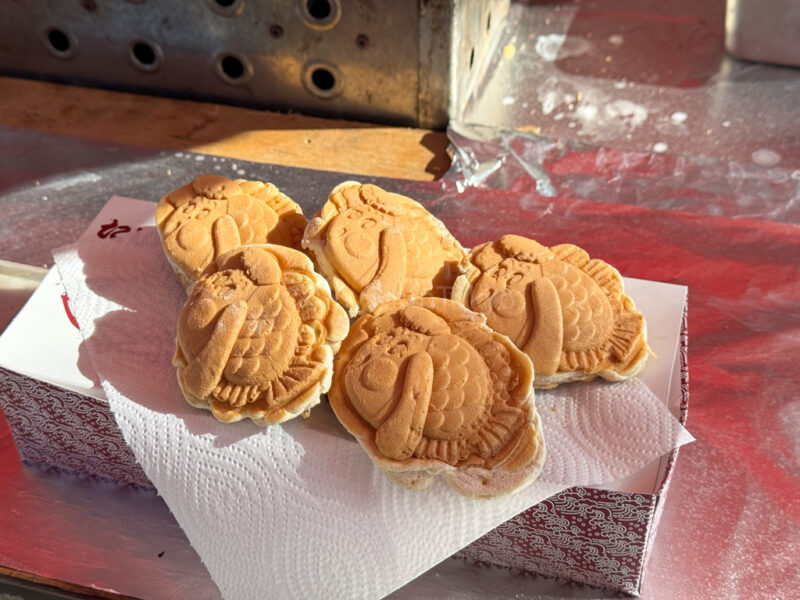
The shrine grounds are absolutely lovely, but the best part is undoubtedly the Maple Garden.
Maple Garden at Kitano Tenmangu Shrine
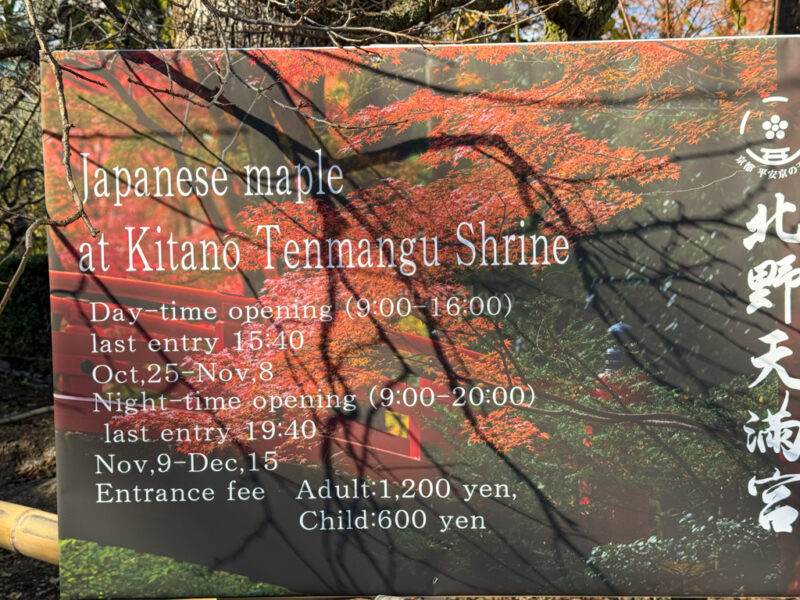
The maple garden is open from early November to mid-December. You need to pay an entrance fee to get inside, which is 1200 yen for adults and 600 yen for children. This might seem expensive, but it’s absolutely worth it.
If you’re not sure where to buy the ticket, look for the information desk, which will be next to the entrance of the garden. It will have English signs as well.
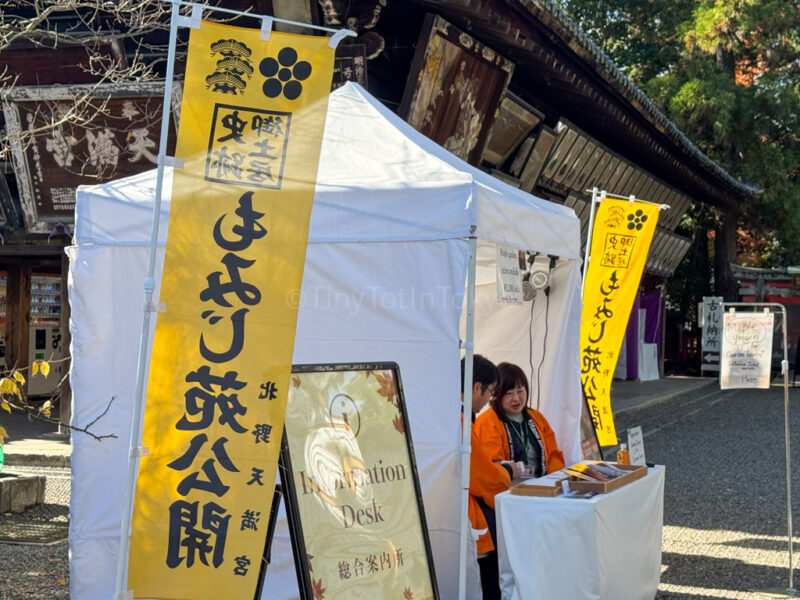
Likely because this area charges an entrance fee, we noticed that there weren’t as many people compared to the rest of the shrine grounds, which made it perfect for photos.
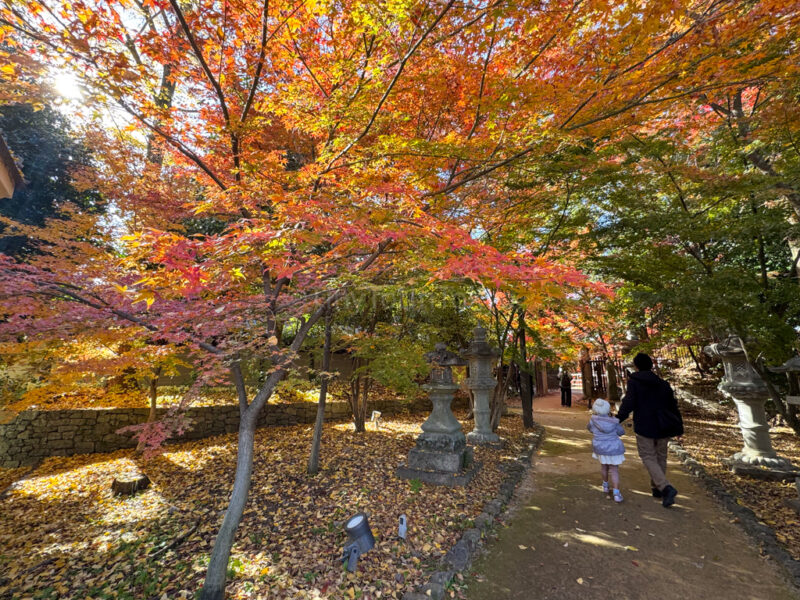
There are over 350 maple trees in this area, which looked as stunning as it sounds. The colors were so vibrant and dreamy. I’ve lived in Japan for over 15 years and I think this was one of the most beautiful places to see momiji (maple leaves).
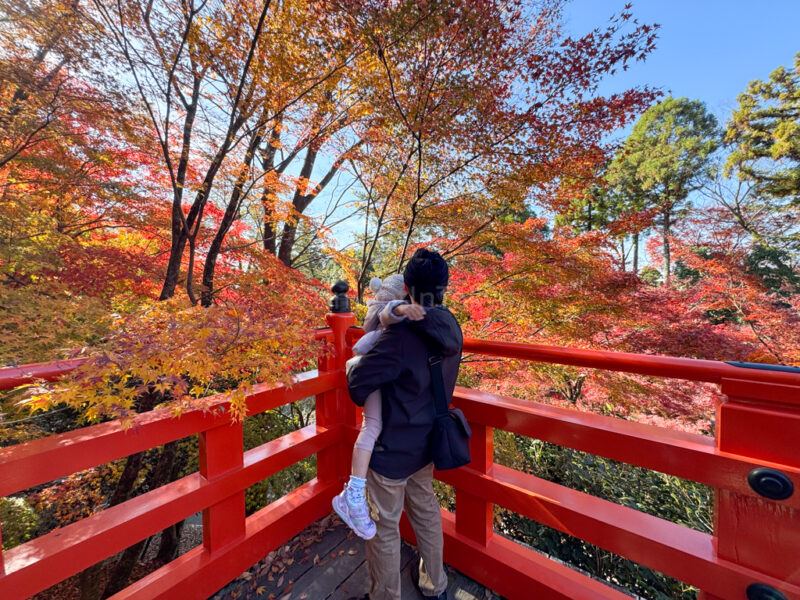
I especially loved this view of Kitano Tenmangu framed by momiji.
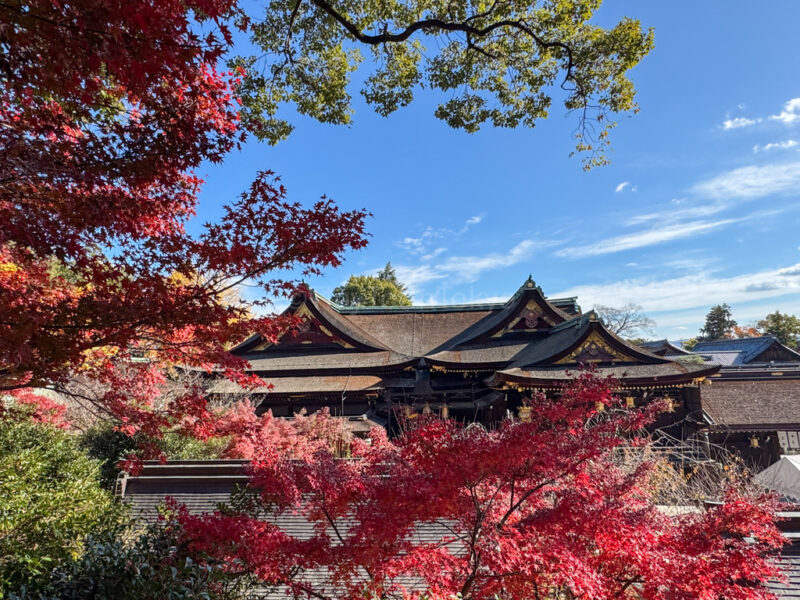
When we were done, we enjoyed some tea for free at a tiny shop near the exit and bought some dango to go with it.
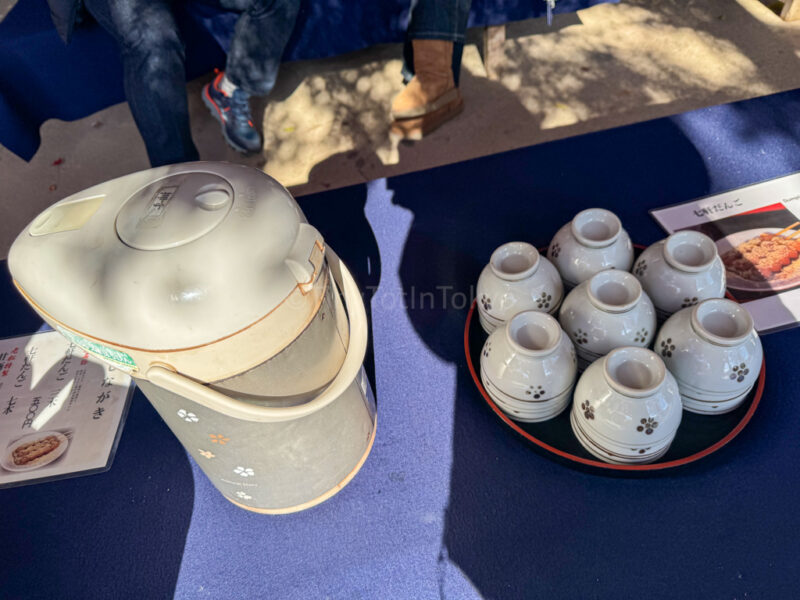
The dango was absolutely delicious and I highly recommend trying it out when you’re there.
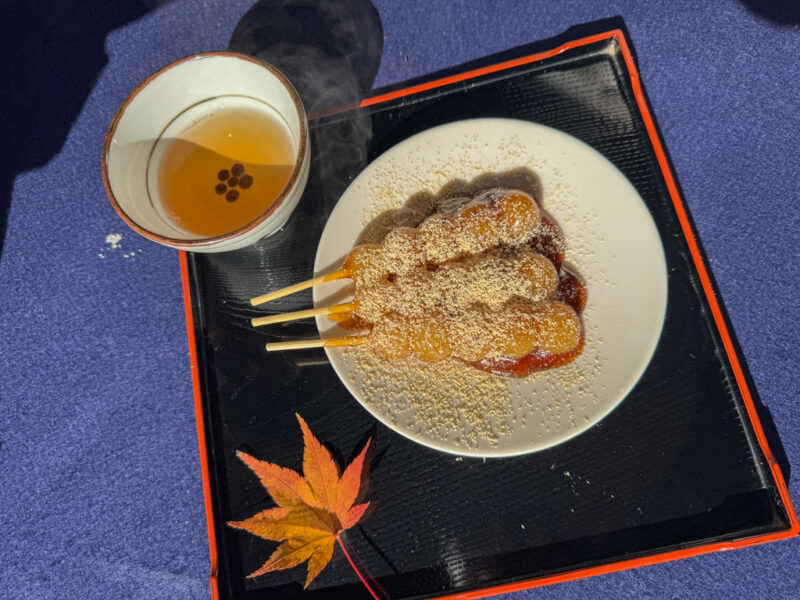
The staff also gifted each of us a Japanese sweet to enjoy. This dessert consisted of mochi with white bean paste inside.
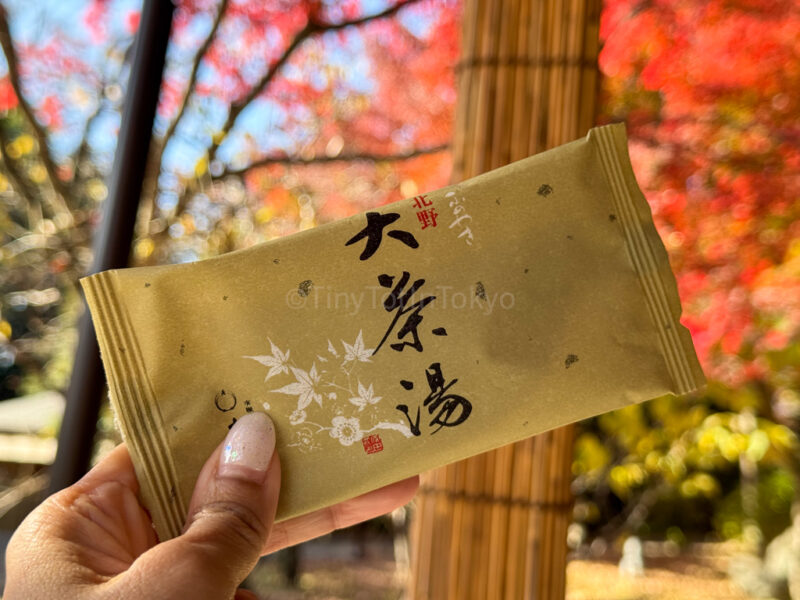
In total, we spent about two hours at Kitano Tenmangu Shrine, one hour at the main grounds, and another hour in the maple garden. If you have time, consider visiting Hirano Shrine, which is a two-minute walk away.
FAQ
Is Kitano Tenmangu kid-friendly?
Yes, I went with my daughter who was five years old at the time. She loved all the space she had to run around, collecting maple leaves, and the snacks she got to eat.
Is Kitano Tenmangu stroller-friendly?
Yes, it’s one of the few shrines that doesn’t have stairs so it’s easy to bring a stroller.
Can I get a goshuin at Kitano Tenmangu Shrine?
Absolutely! They have beautiful seasonal goshuin, too.
What is Kitano Tenmangu Shrine famous for?
It’s most famous for being the first shrine that enshrined a real person as a deity, who is most known as the god of learning.
It’s also known for its stunning autumn and spring foliage.

